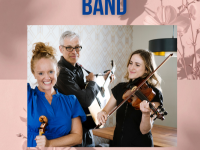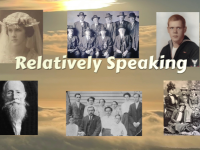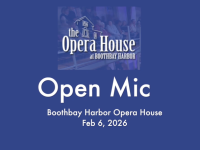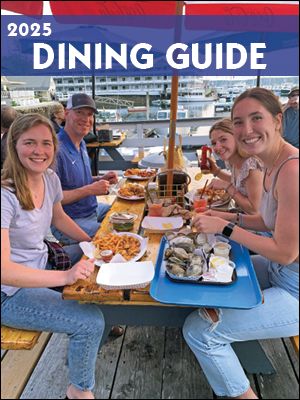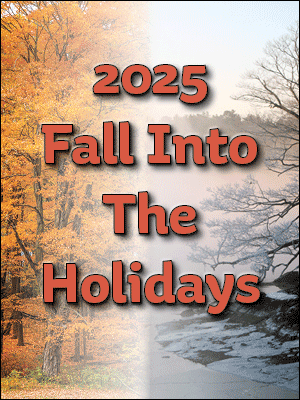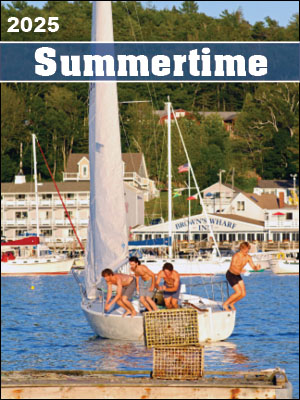The road to recovery
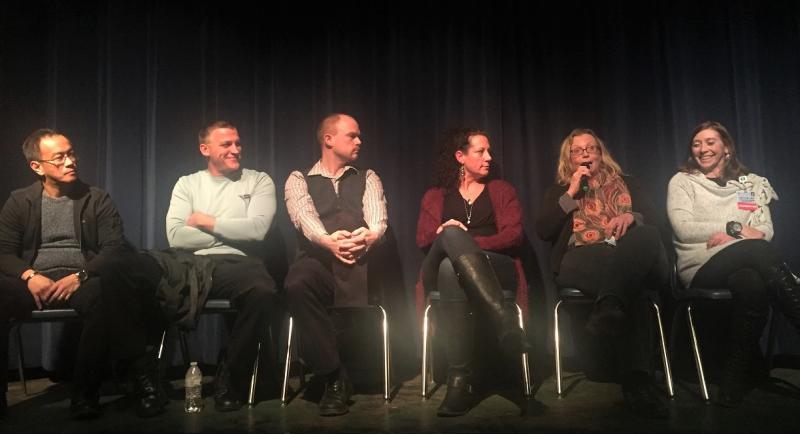 Panel members representing the local recovery collaborative in the Boothbay region, from left: Dr. Aquilino Alamo, Chief Bob Hasch, Daniel Bates, Lisa Carbone, Holly Stover, and Angela Musto at the documentary screening of “Recovery Boys” and participants in the Q&A afterward. LISA KRISTOFF/Boothbay Register
Panel members representing the local recovery collaborative in the Boothbay region, from left: Dr. Aquilino Alamo, Chief Bob Hasch, Daniel Bates, Lisa Carbone, Holly Stover, and Angela Musto at the documentary screening of “Recovery Boys” and participants in the Q&A afterward. LISA KRISTOFF/Boothbay Register

 Panel members representing the local recovery collaborative in the Boothbay region, from left: Dr. Aquilino Alamo, Chief Bob Hasch, Daniel Bates, Lisa Carbone, Holly Stover, and Angela Musto at the documentary screening of “Recovery Boys” and participants in the Q&A afterward. LISA KRISTOFF/Boothbay Register
Panel members representing the local recovery collaborative in the Boothbay region, from left: Dr. Aquilino Alamo, Chief Bob Hasch, Daniel Bates, Lisa Carbone, Holly Stover, and Angela Musto at the documentary screening of “Recovery Boys” and participants in the Q&A afterward. LISA KRISTOFF/Boothbay Register

Raising awareness about addiction and getting the word out about local resources for those seeking, or thinking, about recovery drew about 30 people out for a forum Feb. 10 in Boothbay Harbor. The forum included the screening of the Netflix documentary, “Recovery Boys” at the Boothbay Region High School auditorium. The audience included some people in recovery, those affected by a loved one’s addiction, community members and others involved in addressing the opioid crisis.
The documentary focused on the recovery of four men in West Virginia’s Jacob’s Ladder – an in-house, six-month treatment program. “We’re all just one thought away (from using again, relapsing),” says one of the counselors to the men in the program. There’s a reason N(arcotics) A(nonymous)’s slogan is Just For Today and AA’s is One Day At A Time. Recovery is more than just staying clean. It’s about acknowledging the effect your addiction has had on your life, on family and friends; it’s learning about yourself, facing your true self, and starting over without a crutch - and that’s not easy.
The documentary is part of a statewide series of Points North Institute’s Recovery in Maine program that began holding screenings in July of last year. To date, discussions and screenings have been held in 11 towns and four of Maine’s counties. Locally, the Family Care Center has been working with the Boothbay Region Community Resources Council’s Addiction Outreach Program and the Boothbay Harbor Police Department – in addition to the new Peer Center that opened last November, to provide the support people in recovery need.
After the viewing of “Recovery Boys,” an engaging and informative panel discussion was held, moderated by Marva Nesbit. On the panel were Boothbay Harbor Police Chief Bob Hasch, Dr. Aquilino Alamo of the Family Care Center/Suboxone Assistant Provider for 12 years; Holly Stover, Boothbay Region Resources Community Center Addiction Outreach Specialist; Dr. Daniel Bates, ER physician; and Lisa Carbone, Integrated Behavioral Health Clinician; Angela Musto, Outpatient Addiction Specialist at Mid Coast Hospital’s Addiction Resource Center (ARC).
The panel noted the lack of continuing support for the men in the film on the outside after completing the treatment program at Jacob’s Ladder. The levels of support available for those in recovery here in our community were presented through conversation and the testimonials of three community members.
“We see this every single day,” said Musto of the struggles faced by those in recovery. “I think that’s one of the things that we as a collaborative team work together to support them and those just coming into recovery while continuing to live in the community where they have lived including finding them housing.”
Thanks to grants, fundraisers, LincolnHealth, and private donors, this comprehensive path to recovery has been making a difference in the lives of those in recovery, and those who love them, for two and a half years. BRCRC’s Addiction Outreach can help with basic life needs. And, noted Stover, people gain health insurance through CarePartners, help dealing with court dates, and issues with childcare and families, and finding employment.
Unlike in the documentary, the recovery program here in Boothbay Harbor incorporates medication-assisted treatment in the form of Suboxone, a narcotic that decreases cravings and helps minimize or suppress withdrawal symptoms.
For the past 12 years, Dr. Alamo has been a Suboxone assistant provider. He decided to do this after being approached by a few colleagues. It required some courses, but it has made it possible for those seeking to break free of their addiction to do so without daily trips to Portland.
“I think it’s the best decision I’ve made,” said Alamo. “I’ve seen people here be very successful in recovery.”
At the ER, if a patient tells Dr. Bates they want to stop using opioids – but it’s the weekend and the other resources are closed - thanks to MaineHealth, Bates (and physicians at the LincolnHealth emergency department in Damariscotta), recently was permitted to prescribe a three-day dosage of Suboxone to be administered daily at the ER. “We want people to know we are here to help them – without judgment,” said the LincolnHealth Emergency Department physician. Bates will help connect a patient with resources to continue the treatment begun at the ER.
Alamo said he approaches addiction with a scientific point of view. Addiction is a disease, he said. Most in the medical community would agree, which is why many medical insurances now cover the medication and the counseling prescribed for people in recovery.
“This is now a widely accepted definition of addiction today as compared to even a few years ago,” said Alamo. “And now it can be treated as such.”
Carbone added, “Addiction is being accepted as a disease now, and not a moral choice. We are able to treat it as the medical disorder it is. I think this community has been wonderful in being able to have the conversations and accept that addiction is a disease.”
Adam Sterrs of the Harbor Peer & Wellness Center was in attendance. The Center offers several support groups and classes to build self esteem and healthy habits, Reiki, creative writing, resume building, and basic life skills.
“The reintegration process is so important,” said Sterrs. “Every piece of the track has to be there. Stigma plays a large role. The Peer Center is a no judgement zone, man. We need to have open and true conversations. An addict needs to trust and we need to deliver that trust.”
Trust issues can go back to childhood. The panel discussed the significant role childhood trauma and adverse experiences play in both usage and relapse. Carbone and Musto help people identify trauma triggers and how each person can deal with triggers when they arise – and these are not one size fits all coping skills. To help identify possible traumatic experiences many addicts have in common, ACES - A(dverse) C(hildhood) E(xperiences) S(urvey), developed by the Maine Resilience Building Network, is used. Carbone said many addicts have suffered childhood trauma. “It’s people, places and things that have impacted their lives and affect them still,” Carbone said.
Stover noted there is trauma associated with using. “During addiction a lot of painful, hard things can happen to you. Add to that the shame and stigma that’s created by society and from living in a small community where someone will say, ‘Did you hear about so-and-so … ‘ not a lot of privacy. The trauma can easily be triggered and relapse can happen,” Stover said.
The incidence of relapse is high and can typically occur several times. “We all have the capacity for resiliency,” Carbone said.
A most unsettling statistic concluded the documentary: 90 percent of the people who need help do not receive it.
For over 10 years, members of the community have turned to the chief to talk about issues affecting them, from domestic violence to drug addiction. People called him at the station snd stopped him on the street and, sometimes, those conversations started when there was an arrest.
“The numbers (of people affected by addiction) are staggering. Not only folks with this issue, but the people around them – you see the constant concern and worry in the film of family and friends about the men. And we all (gestures across the stage) see this every day. It’s heart-wrenching, ” Chief Hasch said. “And it’s (addiction) in all family backgrounds. Thank God for what (resources) we have here. A lot of people are paying attention now and I think that’s really good. I’ve been through the process and I’ve watched it evolve over the past three to four years.
“We are not doing our job if we aren’t trying to solve the long term problem – it’s not just about putting someone in jail,” continued Hasch, “I think we’re getting there. I remember telling Holly years ago that I didn’t want to be a one-man show, that we should have 20 (professional) people for them to talk to -and be sure they know who (the professionals) are.”
Said Stover, “The outreach program started from nothing two and a half years ago,” Stover said. “We (BRCRC) developed a comprehensive, grassroots, collaborative model. And it’s working.”
A young woman on the verge of tears expressed her gratitude for the program. “If it weren’t for these people ( on the panel) I wouldn’t be in recovery today, With the meds I can get up and function every day. I don’t think of the police as suits, I think of them as my friends. I check in with them every day and they check in with me, and, if it weren’t for you all I wouldn’t be here now.”
A man named Chris shared powerful testimony to the effectiveness of the program: “I’ve been on meds for two years now. The medication has helped my life dramatically. Without it, and these people (on the stage), I would be in jail or dead by now – and that’s a fact, not an overstatement. The chief has done a lot for me, and Holly and Dr. Alamo who made me realize my addiction is a disease. It’s really hard and it took me screwing up bad to do it, but I’m in recovery. I’ve got an awesome girlfriend, a job … I appreciate you all.”
A young man named Dan said his life has taken a 180 degree turn from the direction it was headed. “It’s like a weight lifting off your shoulders. I can’t stress enough where my life was headed. I haven’t been in this program for two years, but the meds, the meds stop you from using. It’s helped me dramatically. I’m more focused, my relationship with my mother has done a 180 ...”
Educating the public is a priority. Chief Hasch and Holly Stover have talked about the Addiction Outreach Program at the Rotary, Chamber of Commerce and Boothbay Harbor Yacht Club. Courtney Moulton of LincolnHealth said outreach is happening in the schools. A 40-minute video, “Addiction Is A Brain Disease,” on YouTube was recommended to the audience.
And for those in recovery, considering recovery and those early in their recovery, Dr. Alamo has a message for you: “Before you call the dealer, call us. The team is always here for you.”
And here’s that team’s contact info: Community Navigator: 633-6272; Boothbay Region Community Resources Council: 633-6272 (6 St. Andrews Lane, Suite 230, Boothbay Harbor); Lincoln Medical Partners/Family Care Center: 633-7820 - 19 St. Andrews Lane, Boothbay Harbor; The Peer Center: 315-6236 – 35 School St., Boothbay Harbor. Program coordinator: Adam Sterrs.
Event Date
Address
United States


















